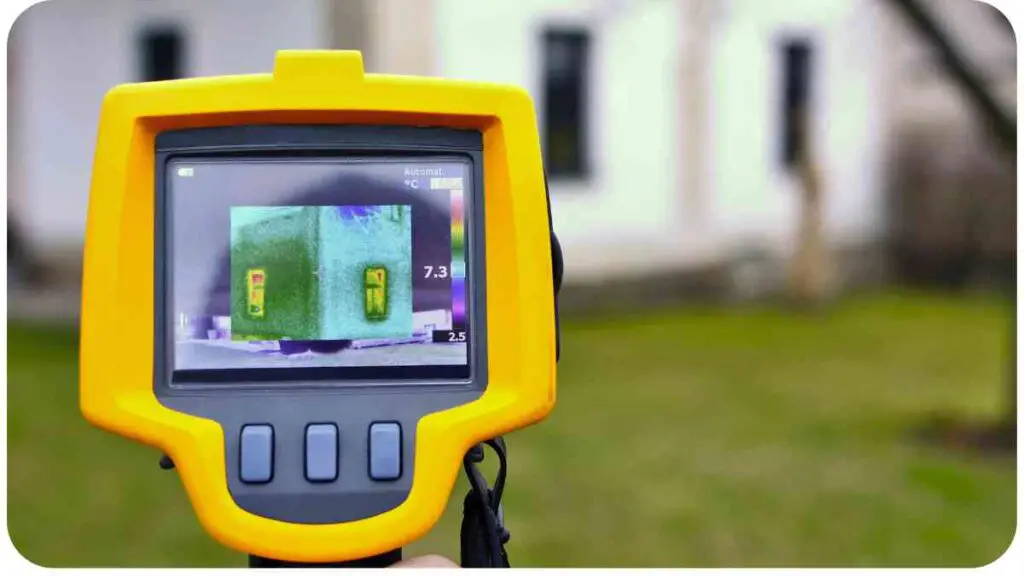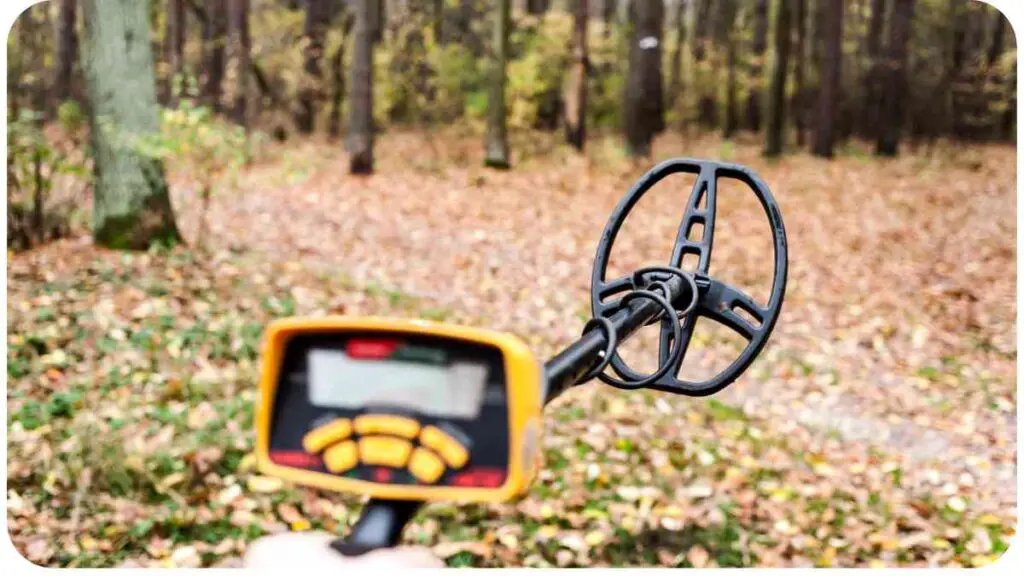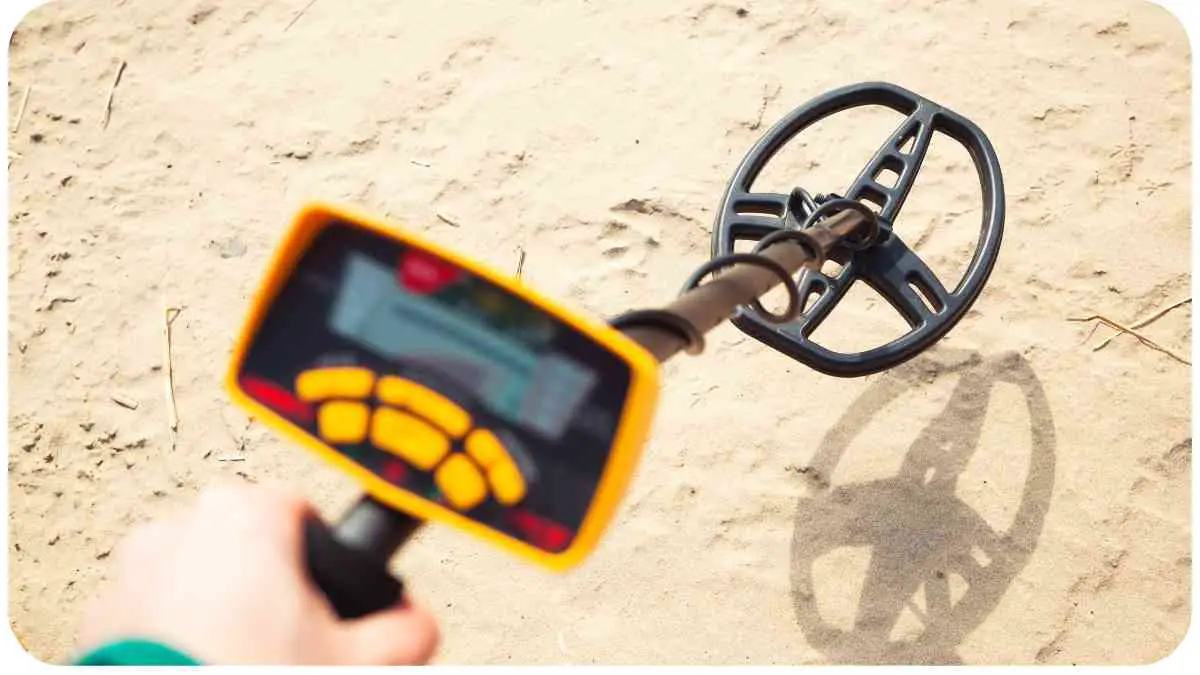Metal detectors have long been used to unearth buried treasures, coins, and various metallic objects. But can these devices also find diamonds? In this comprehensive guide, we will explore the capabilities of metal detectors when it comes to diamond detection.
We will delve into the science behind how metal detectors work, understand the limitations they have for diamond detection, and provide expert tips to maximize your chances of finding diamonds. So, put on your detective hat and let’s unravel the mysteries of diamond detection!
| Takeaways |
|---|
| Metal detectors can occasionally detect diamonds due to the presence of trace metals within the stones. |
| The effectiveness of diamond detection with metal detectors depends on factors such as diamond size, depth, and orientation. |
| Diamonds with metallic inclusions are more detectable with metal detectors, while lab-created diamonds may lack such inclusions. |
| Consider the sensitivity, frequency range, discrimination capabilities, and ground balance adjustment options when selecting a metal detector for diamond detection. |
| Research diamond-prone areas, be patient and thorough during your search, and utilize discrimination features to enhance diamond detection. |
| Popular metal detectors known for their performance in diamond detection include Fisher F75, Garrett AT Pro, Minelab Equinox 800, and White’s Spectra V3i. |
| Understand the limitations and manage expectations when attempting to find diamonds with a metal detector. |
| Stay informed about technological advancements in metal detector technology for improved diamond detection. |
2. How Do Metal Detectors Work?
Before we venture into diamond detection specifically, it’s crucial to understand the fundamentals of how metal detectors operate. Metal detectors work on the principle of electromagnetic induction. They consist of a coil that emits an electromagnetic field when an electric current passes through it.
When this field encounters a metallic object, it creates another electromagnetic field within the object itself. This process leads to a disturbance in the coil’s electromagnetic field, which the metal detector picks up. By analyzing these disruptions, the metal detector can alert the user of the presence of metal.
Embark on a rewarding journey in metal detecting with our step-by-step guide. Uncover the mysteries beneath the surface and master the art of using a metal detector, ensuring a successful and fulfilling treasure hunt.
3. Understanding Diamond Detection

While metal detectors are primarily designed to locate metallic objects, they can incidentally detect diamonds in certain instances. Diamonds, being natural crystals, often contain trace amounts of metals such as iron, nickel, or cobalt. These trace metals can trigger the metal detector’s response, leading to the detection of diamonds.
However, it’s important to note that not all metal detectors are equally capable of detecting diamonds. The sensitivity and detection range of a metal detector play a significant role in its effectiveness for diamond detection. Additionally, diamond characteristics and the environment in which they are buried can also impact detectability.
4. Metal Detector Limitations for Diamond Detection
Metal detectors have inherent limitations when it comes to detecting diamonds. Unlike metallic objects, diamonds don’t possess high electrical conductivity, which reduces their detectability. This means that diamond detection with a metal detector may not always be reliable or accurate.
Factors such as diamond size, depth, and orientation can further hinder detection capabilities. Therefore, it’s important to set realistic expectations and understand the limitations before embarking on a diamond-hunting adventure.
Dive into the mesmerizing world of underwater treasures with our list of the top 15 most valuable treasures found while scuba diving. From ancient artifacts to sunken riches, these incredible discoveries will inspire and captivate every scuba diving enthusiast.
Table: Factors Affecting Diamond Detection
| Factors | Impact on Diamond Detection |
| Diamond Size | Smaller diamonds are harder to detect |
| Diamond Depth | Deeper diamonds may be beyond detection range |
| Orientation | Diamonds positioned at certain angles may be missed |
5. Diamond Characteristics That Affect Detection
To enhance your understanding of diamond detection, let’s explore some specific diamond characteristics that significantly influence their detectability with a metal detector:
Electrical Conductivity: Diamonds have low electrical conductivity due to their carbon structure, making them less responsive to metal detectors compared to highly conductive metals.
Metal Inclusions: Some diamonds contain metallic inclusions, such as iron, nickel, or cobalt, which can increase their detectability with a metal detector.
Lab-Created Diamonds: Lab-created diamonds often lack metal inclusions, reducing their detectability with a metal detector. However, some lab-grown diamonds may still exhibit metallic traces, making them more detectable.
Diamond Coatings: Diamonds may be coated with conductive materials for various reasons. These coatings can enhance or impede detection, depending on their thickness and composition.
For those eager to start their treasure-hunting journey, our guide on metal detecting for beginners is the perfect companion. Learn the essentials, choose the right equipment, and set off on an exciting quest to uncover hidden treasures in unexpected places.
6. Selecting the Right Metal Detector for Diamond Detection

To increase the likelihood of finding diamonds with a metal detector, it’s crucial to choose the right equipment. Consider the following factors when selecting a metal detector for diamond detection:
Sensitivity: Look for a detector with higher sensitivity as it will be more responsive to the subtle signals emitted by diamonds.
Frequency: Opt for a metal detector that operates at higher frequencies as this can improve the chances of detecting smaller diamonds.
Discrimination: Choose a metal detector with discrimination capabilities to eliminate false signals and focus on specific target responses.
Ground Balance: Ensure the metal detector has ground balance adjustment options to compensate for mineralized soil, which can interfere with diamond detection.
Table: Popular Metal Detectors for Diamond Detection
| Metal Detector | Sensitivity | Frequency Range | Discrimination | Ground Balance |
| Fisher F75 | High | 13 kHz – 15 kHz | Yes | Adjustable |
| Garrett AT Pro | Moderate | 15 kHz | Yes | Adjustable |
| Minelab Equinox 800 | High | 5 kHz – 40 kHz | Yes | Automatic |
| White’s Spectra V3i | High | 2.5 kHz – 25.5 kHz | Yes | Adjustable |
Now that we have looked at popular metal detectors for diamond detection, let’s delve into some tips and tricks to maximize your chances of finding diamonds.
7. Tips for Maximizing Diamond Detection Success
- Research Diamond-Prone Areas: Before you begin your diamond-hunting expedition, research areas with a history of diamond discoveries. Geographical features like volcanic pipes or ancient river channels are known to host diamond deposits.
- Study Geological Maps: Get familiar with geological maps of the areas you plan to explore. These maps often indicate areas with higher chances of diamond presence, such as regions with specific rock formations or soil types associated with diamonds.
- Be Patient and Thorough: Diamond detection requires patience and meticulousness. Move your metal detector slowly and thoroughly across the ground, ensuring you cover the entire search area. Often, diamonds can be easily missed if you rush or overlook certain spots.
- Target Highly Mineralized Soil: Diamonds are often found in areas with highly mineralized soil. Adjust your metal detector’s ground balance settings to combat the interference caused by mineralization, allowing for better diamond detection.
- Practice with Different Metal Detectors: Every metal detector operates slightly differently, and their performance can vary based on factors like soil composition and mineralization. Experiment with different metal detectors to find the one that works best for your specific diamond-hunting needs.
- Utilize Discrimination Features: Metal detectors with discrimination settings can help filter out unwanted signals, allowing you to focus on diamond-like responses. Adjust the discrimination levels to minimize false alarms from non-diamond targets.
- Consider Coil Size and Configuration: Different search coil sizes and configurations can have varying effects on diamond detection. Smaller search coils provide better sensitivity for smaller diamonds, while larger coils cover a greater search area but may sacrifice sensitivity to smaller objects.
- Stay Informed about Technological Advances: The field of metal detectors is constantly evolving. Stay up-to-date with the latest advancements in technology and features that can improve diamond detection, such as multi-frequency and pulse induction detectors.
Now that you have a better understanding of how to maximize your diamond detection success, let’s explore some popular metal detectors known for their performance in finding diamonds.
Immerse yourself in the enchanting tales of antique discoveries with our captivating narratives. From flea markets to estate sales, these stories showcase the magic of finding historical artifacts and the joy of preserving the past for future generations.
8. Popular Metal Detectors for Diamond Detection
Let’s take a closer look at four metal detectors that have gained recognition among diamond hunters:
- Fisher F75: With its high sensitivity and adjustable ground balance, the Fisher F75 excels in locating small diamonds. Its frequency range of 13 kHz to 15 kHz ensures efficient detection, while the discrimination feature helps filter out false signals.
- Garrett AT Pro: The Garrett AT Pro offers a good balance between sensitivity and discrimination capabilities. Operating at a frequency of 15 kHz, it can effectively detect diamonds and other valuable objects in various soil conditions.
- Minelab Equinox 800: This multi-frequency metal detector covers a broad spectrum from 5 kHz to 40 kHz, providing impressive depth and sensitivity for diamond detection. Its automatic ground balance adjusts seamlessly, making it suitable for different terrains.
- White’s Spectra V3i: Known for its versatility, the White’s Spectra V3i allows you to fine-tune your diamond detection efforts. With adjustable frequency from 2.5 kHz to 25.5 kHz and discrimination settings, it offers reliable performance in the search for diamonds.
Remember that the selection of the right metal detector should be based on your specific requirements, budget, and level of expertise.
Ensure a respectful and legal treasure-hunting experience with our guide on obtaining permission for treasure hunting on private land. Navigate the complexities, understand landowner considerations, and embark on your adventure ethically, preserving the thrill of the hunt for generations to come.
9. Conclusion
In conclusion, while metal detectors are primarily designed for detecting metallic objects, they can occasionally reveal the presence of diamonds. However, it’s important to understand the limitations and factors influencing diamond detection with metal detectors.
By considering the sensitivity, frequency range, discrimination capabilities, and ground balance options of a metal detector, you can increase your chances of finding diamonds.
Remember to research diamond-prone areas, be patient and thorough during your search, and utilize discrimination features for more accurate results. Stay informed about new technologies and advancements to enhance your diamond detection skills. Happy hunting!
Further Reading
Here are some helpful resources for further reading on the topic of using metal detectors to find diamonds:
- Can a Metal Detector Find Diamonds? – Detecting School: This article provides insights into the effectiveness of metal detectors for diamond detection and offers tips for maximizing success in your diamond-hunting endeavors.
- Best Diamond Detector Devices – Detector Power: Discover a selection of the best diamond detector devices available in the market. This article provides reviews and recommendations for those looking to invest in a metal detector specifically designed for diamond detection.
- Diamond Finder – Orient Detectors: Orient Detectors offers a comprehensive diamond finder guide, explaining the technology, features, and benefits of their diamond detection devices. Learn about the latest advancements in diamond detection technology and find the perfect tool for your diamond hunting needs.
FAQs
Here are some frequently asked questions about using metal detectors to find diamonds:
Can a metal detector reliably detect diamonds?
Metal detectors can occasionally detect diamonds due to the presence of trace metals within the stones. However, the effectiveness of detection depends on several factors, such as the size of the diamond, its depth, and orientation. It’s important to set realistic expectations and understand the limitations of metal detectors for diamond detection.
What characteristics of diamonds make them detectable with metal detectors?
Diamonds containing trace amounts of metals like iron, nickel, or cobalt have a higher chance of being detected by metal detectors. However, diamonds’ low electrical conductivity compared to metals can reduce their detectability. Additionally, lab-created diamonds may lack metal inclusions, making them less detectable with metal detectors.
How can I maximize my chances of finding diamonds with a metal detector?
To increase your chances of finding diamonds, it’s important to choose a metal detector with higher sensitivity and a frequency range suitable for diamond detection. Properly calibrate the detector’s ground balance to compensate for mineralized soil, which can interfere with detection. Thoroughly search diamond-prone areas and be patient while conducting your search.
What are some popular metal detectors for diamond detection?
Some popular metal detectors known for performance in diamond detection include the Fisher F75, Garrett AT Pro, Minelab Equinox 800, and White’s Spectra V3i. These detectors offer varying levels of sensitivity, discrimination capabilities, and frequency ranges to aid in diamond detection.
Can I use a regular metal detector to find diamonds?
Regular metal detectors, designed for general metal detection, can pick up diamonds if the stones contain trace metals. However, the sensitivity of regular metal detectors may not be optimized for diamond detection. To increase your chances of finding diamonds, it’s recommended to use a metal detector specifically designed for diamond or gemstone detection.
Please note that while metal detectors can increase the chances of finding diamonds, there are no guarantees. The presence and location of diamonds are influenced by various geological and environmental factors.

Hi there! My name is Hellen James, and I’m here to talk to you about treasure hunting. I’ve been a fan of treasure hunting ever since I was a kid, and if you’re a fan of treasure hunting or just like the idea of finding a long-lost fortune, then this blog is for you.

